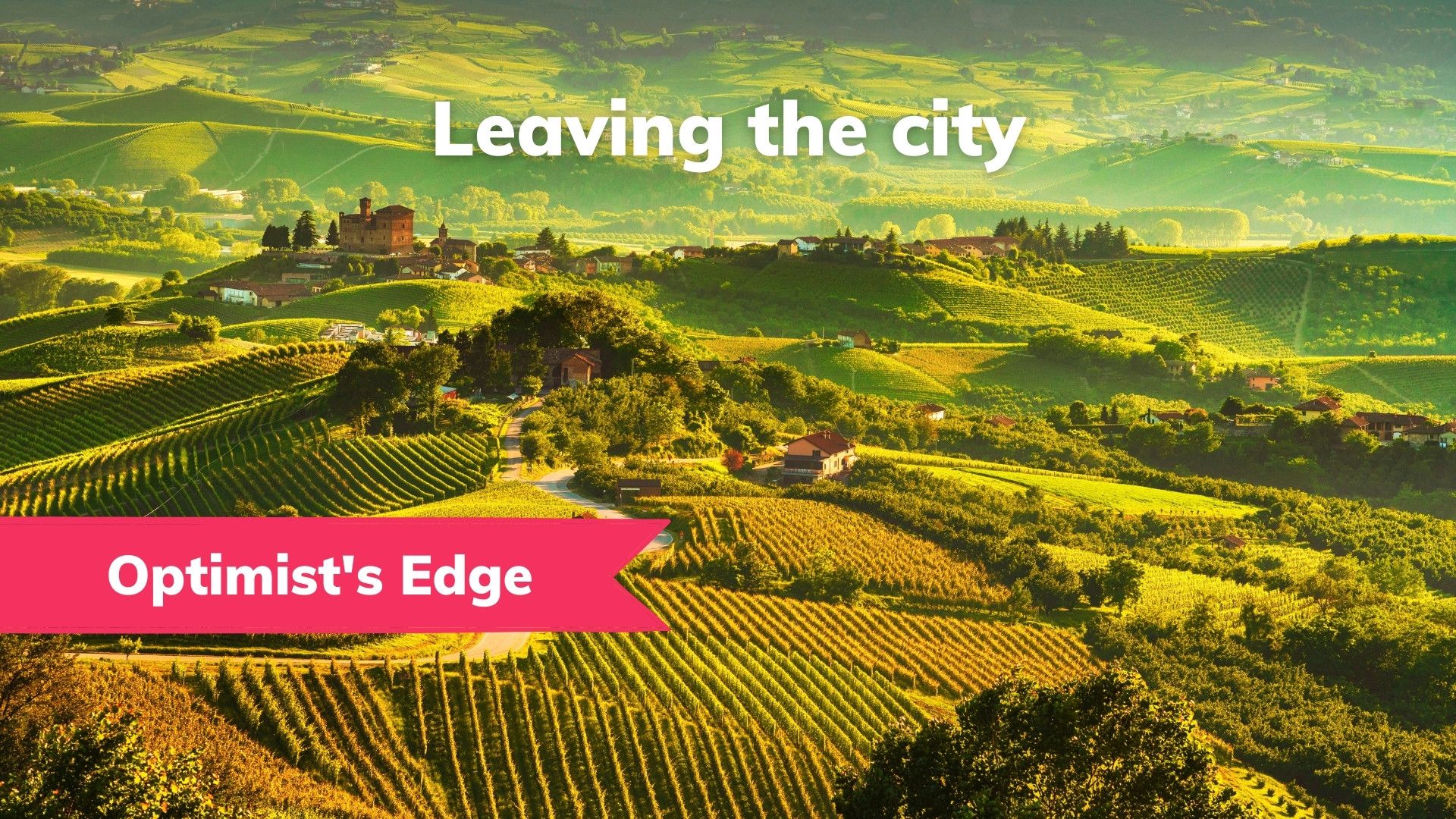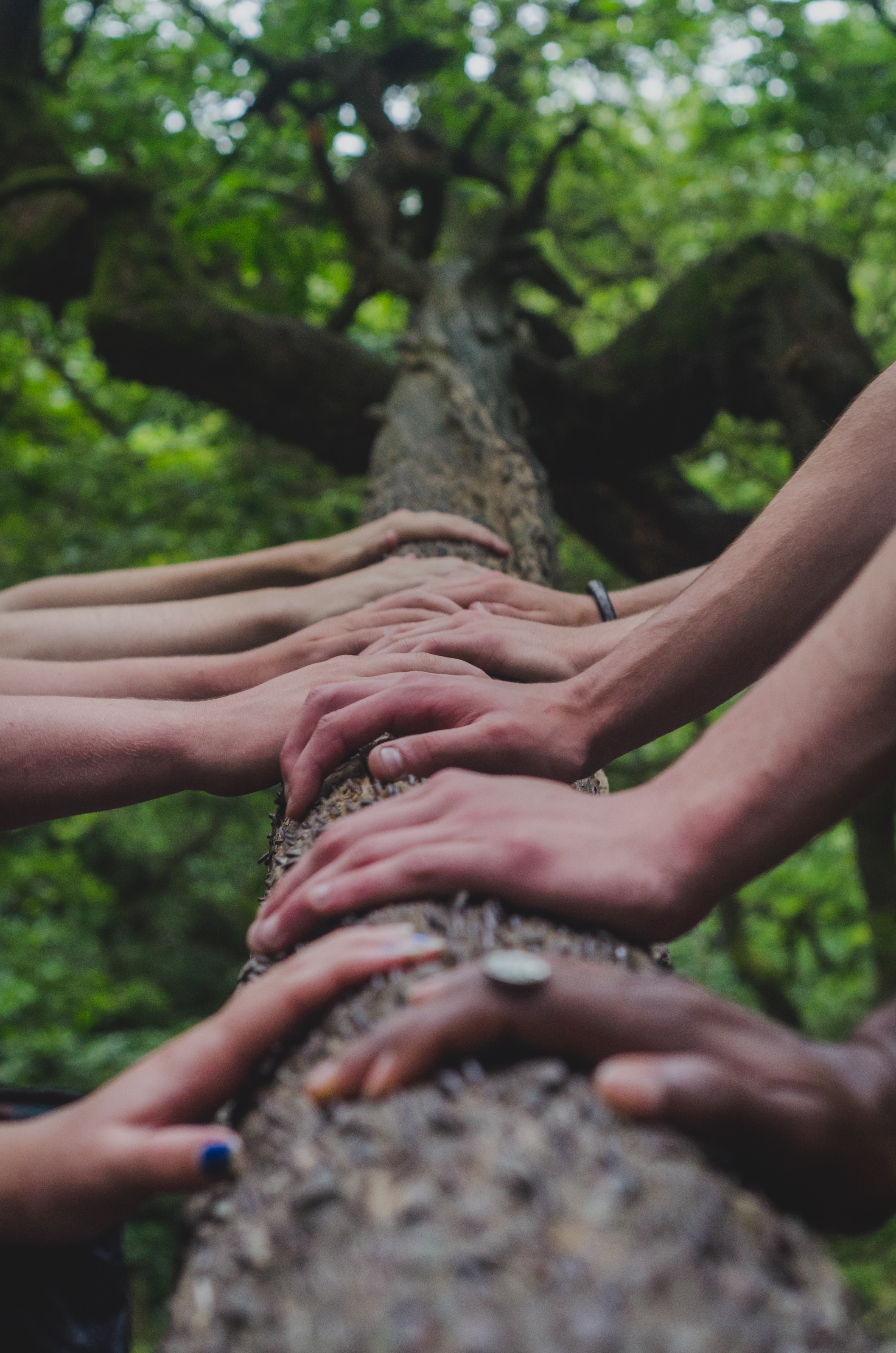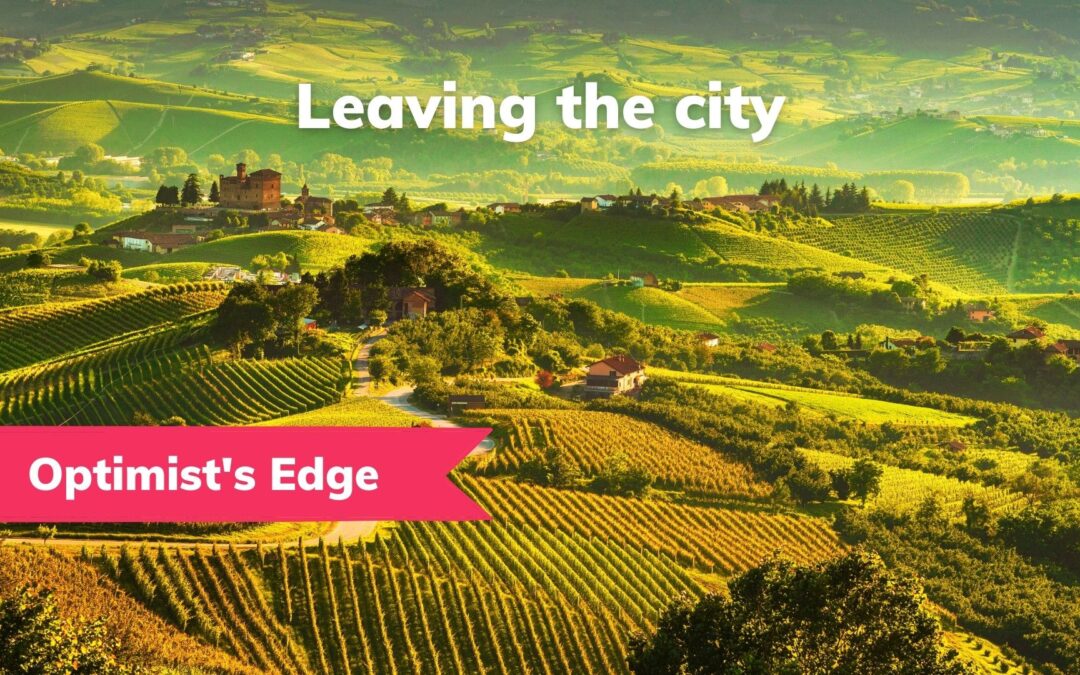📉 What people think

We asked people: If you could choose freely, where would you live?
The most popular choice is "in the countryside, near a city" with 43 percent, followed by "in a small city" with 23 percent. In fourth and last place comes "in a large city", with 17 percent.

📈 Here are the facts
In a previous article, we analyzed the de-urbanization trend underway in many cities of the western world: London, Berlin, Stockholm, Paris, New York…

The growing possibilities of remote working and the digitalization of many services are the fundamental engines of this ongoing change in search of a healthier lifestyle. Technology could soon favor this choice even more thanks to upcoming innovations such as self-driving cars or drones for home deliveries.
But it's frequently not just a trivial "move out" of the city while maintaining the same habits but rather the research of a deeper transformation towards a completely different lifestyle.
The documentary Planet Local: A Quiet Revolution presents this poorly publicized change, forming a new movement called Localization which is growing silently.
"Beyond the mainstream media, on the ground, on every continent, a quiet revolution is emerging. People are seeking community, collaboration, ways of life that nurture the natural world instead of destroying it."
Localization intends to celebrate local diversity, regional autonomy, and local customs, creating locally self-sufficient communities in terms of food, energy, finance, and more.
The opportunities created by localization are many:
- Self-production of food: The main possibility for all local communities is to become independent on the food side. Unlike the large monocultures that impoverish the territory, it's possible instead to focus on growing local varieties by practicing regenerative agriculture and permaculture to increase the nourishment of the soil. Even on the public land of a large city like Seattle (USA), it was possible to establish a semi-natural ecosystem called Beacon Food Forest, based on the principles of food forestry. The forest is run by local volunteers primarily as an open harvest, meaning anyone can freely forage from the site. After 10 years almost all the produce is harvested and no one has been seen "stealing" an entire crop.
- Buy local: Within the local communities, surplus products from peri-urban horticulture can be resold in urban markets, extracting them from large supply chains and reintegrating them into the local flow.
- Start a local business to meet basic needs: In a well-organized local network where zero miles products are widely preferred, it's really possible to turn your secret passion into a thriving and profitable business. The examples could be manifold, from bee-keeping to woodworking to homemade desserts.
- Self-production of energy: Outside the cities, it's very convenient to form energy communities that exploit the different resources offered by nature (hydroelectric, biomass, solar, wind, geothermal) in small-scale plants, sharing costs and benefits. It's not as difficult as it sounds. Suffice it to say that on the Isle of Eigg in Scotland the 100 inhabitants have built by themselves a completely off-grid electricity system that integrates wind, small-scale hydroelectric power, and solar energy, providing up to 90-95% of electricity. None of the residents had an electrical engineering background, they just followed the instructions and learned for themselves how to operate the system.
- Formation of strong community bonds: A fundamental element is that local communities strengthen ties within the territory by creating new connections and social relationships. The key is to invest in a local project in which everyone can recognize and fulfill themselves and where the profit remains confined to the local community.
All these opportunities are leading to the birth of new forms of local aggregation based on cooperation, such as Transition Towns and Ecovillages.
These are communities coming together to consciously reimagine and rebuild our society to achieve a low-carbon, socially just future with resilient communities, developing a caring culture focused on mutual support and regeneration of natural environments.

The Transition Network was founded in 2005 and today has 1,098 groups and 25 hubs scattered across all continents, while the Global Ecovillage Network now reaches out to around 10,000 communities on all continents.
💡 Optimist's Edge
We have seen how, through digitization and new technologies existing, services in cities can also be reached in the countryside.
Here you can totally revolutionize your lifestyle by making it healthier, eco-sustainable, less stressful, and more fulfilling. In a local community surrounded by nature, one's secret dreams can be realized more easily, new social bonds can be formed as well as many new business opportunities can open up.

👇 How to get the Optimist's Edge
This theme is currently little known, so with a few tips, you could really become the vector of this lifestyle change.
❓ So, how do you get the most out of this knowledge?
- Join or start a community garden.
- Start to buy in local markets and prefer zero miles food or other products locally made.
- Form your own community’s electrical grid powered by 100 percent renewable energy.
- Satisfy your passions and start a small local business, initially to fulfil your dreams in your spare time, but with a little luck it could become your main job.
- Move your money from large national banks to a community financial institution in order to facilitate a local economic stream.
- Get involved in local community projects with Local futures or the Global Ecovillage Network: donate, attend events, volunteer, join a study or workshop, look for job opportunities.
- Buy land or a house to renovate in the countryside as long as de-urbanization is a little phenomenon and prices are quite low. You could decide to found here a community, a transition town or even an ecovillage, following the GEN design course.
- Contribute to changing the big picture and founding new social and economic rules in order to lay the international shared foundations for this change.
You now have an advantage because you have gained this knowledge before most others –


